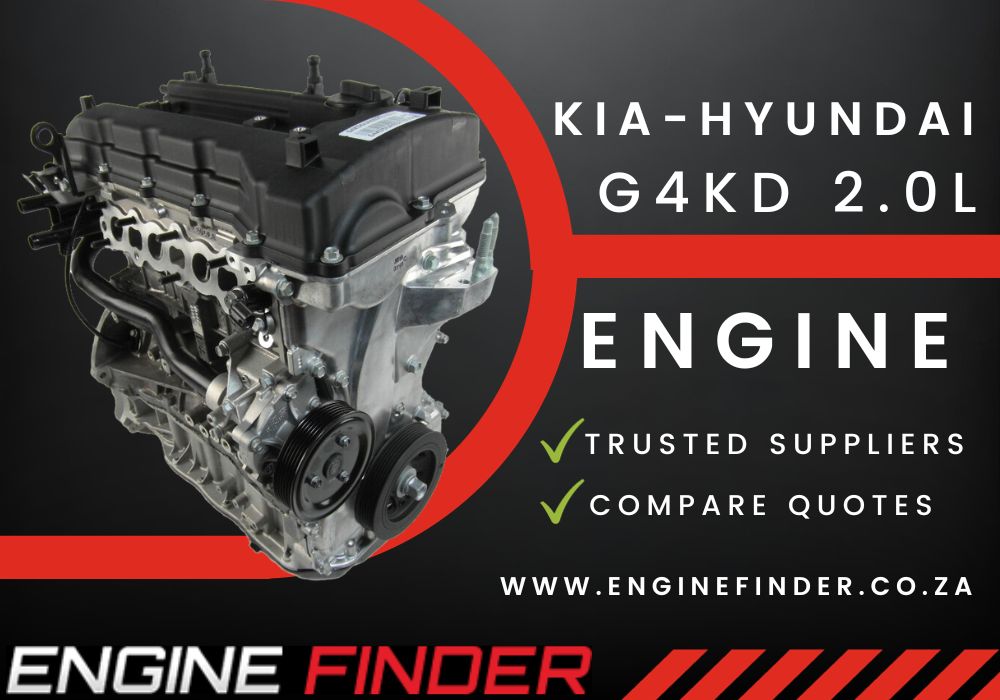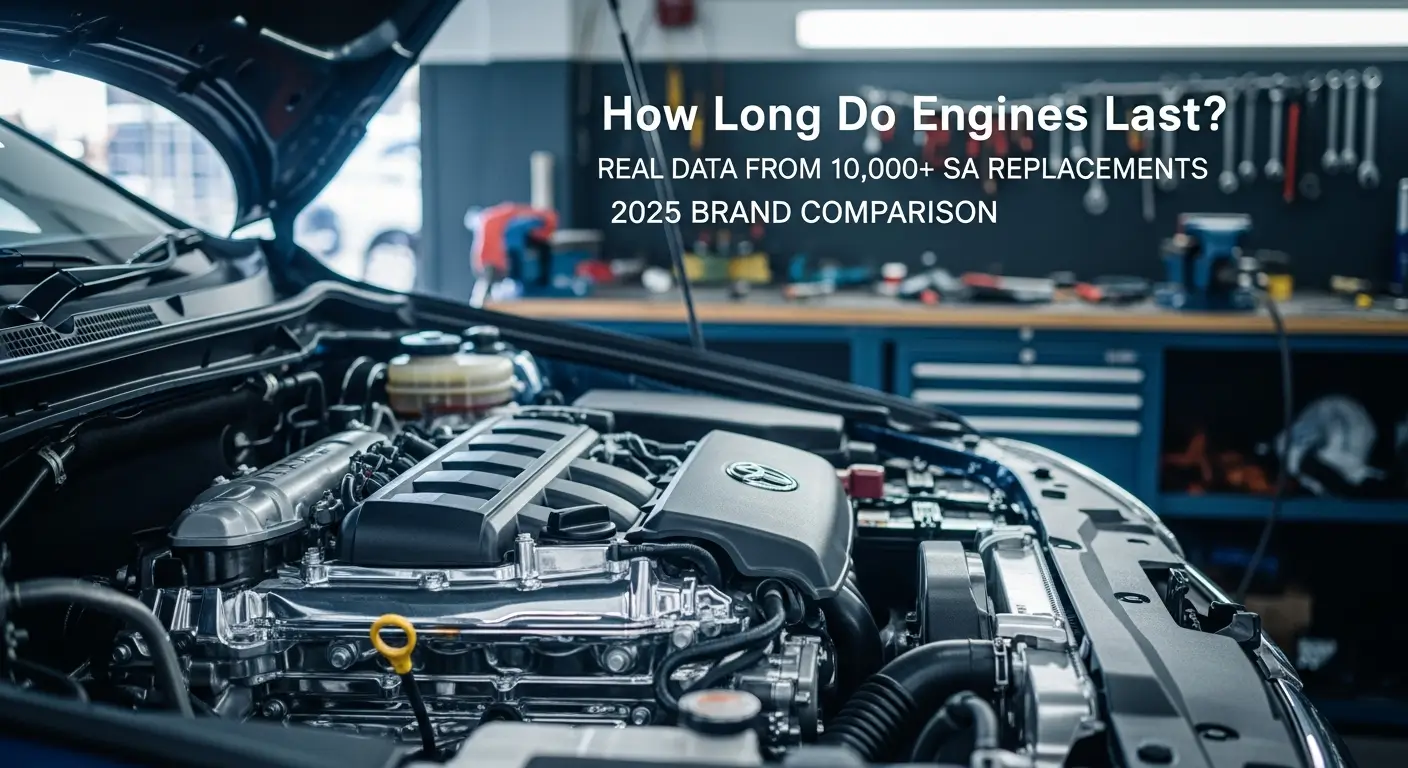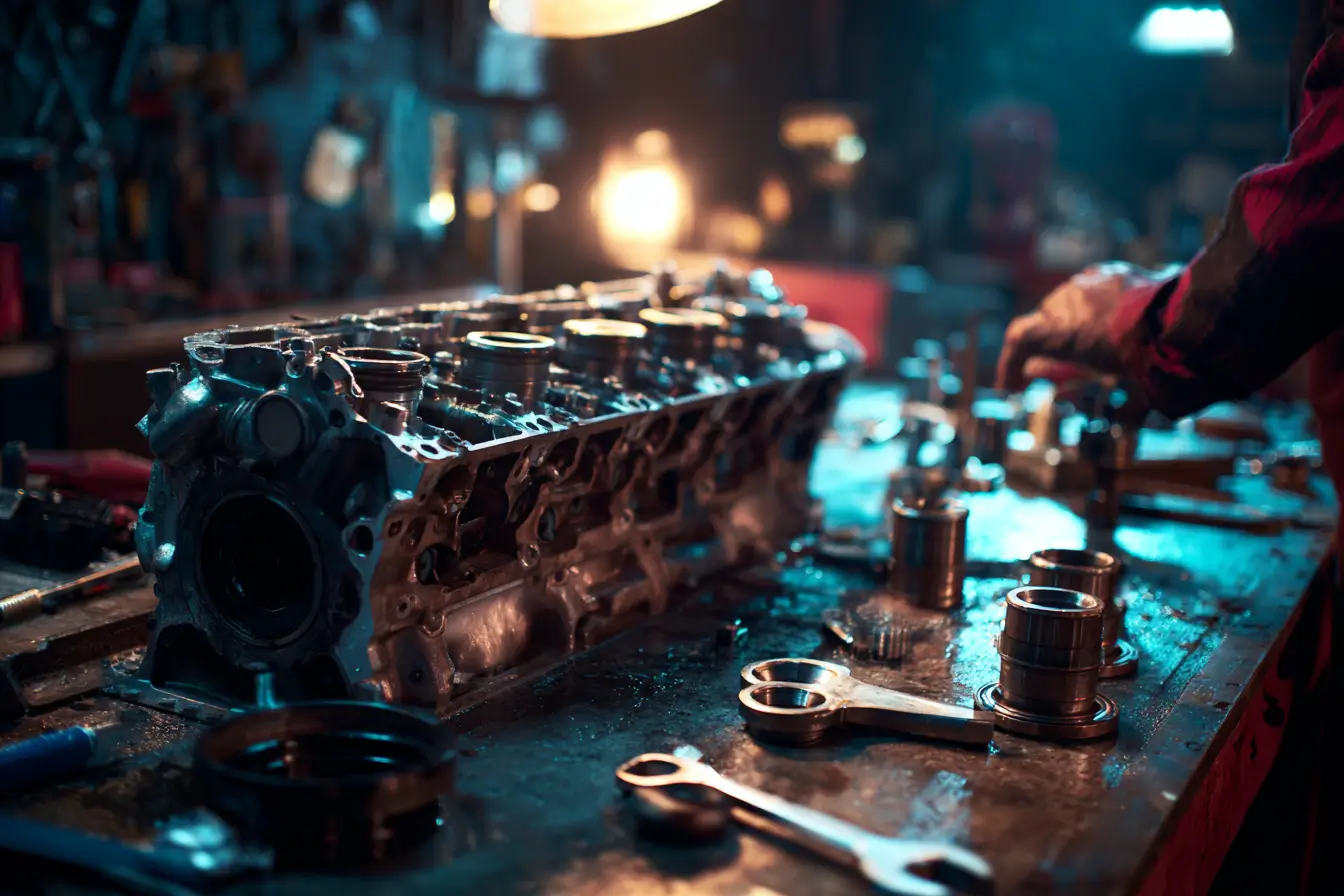
G4KD Engine Problems: Complete Hyundai-Kia 2.0L Troubleshooting Guide
Key Takeaways
| Problem | Main Symptoms | Possible Causes |
|---|---|---|
| Cylinder Scuffing | Metallic knocking, oil consumption | Poor lubrication, overheating, design flaws |
| Oil Consumption | Low oil levels, blue smoke | Worn piston rings, valve seals |
| Bearing Failures | Knocking sounds, oil pressure loss | Oil starvation, contamination |
| Timing Chain Problems | Rattling noise, rough idle | Chain stretch, tensioner failure |
| Carbon Buildup | Poor performance, misfires | Direct injection design, poor fuel |
The Hyundai-Kia G4KD 2.0-liter Theta engine has been widely used across multiple models since 2005. Found in vehicles like the Kia Cerato, Optima, Hyundai Elantra, and Tucson, this engine offers good performance when functioning properly. However, the G4KD has gained notoriety for specific reliability issues, particularly cylinder scuffing problems that typically manifest around 100,000 kilometers, making understanding these issues crucial for South African owners.
G4KD Engine Specifications
| Specification | Details |
|---|---|
| Engine Code | G4KD (Theta II) |
| Displacement | 2.0L (1,999cc) |
| Configuration | Inline-4, DOHC, Naturally Aspirated |
| Power Output | 120-127 kW (161-170 HP) |
| Torque Output | 196-203 Nm @ 4,250 rpm |
| Compression Ratio | 10.5:1 |
| Fuel System | Multi-Port Fuel Injection (MPFI) |
| Production Years | 2005-2014 |
1. Cylinder Scuffing and Piston Seizure
Causes
- Poor Lubrication System Design: Thin oil channels and inadequate oil pump capacity.
- Piston Design Issues: Short skirt pistons causing inadequate heat dissipation.
- Oil Quality Problems: Using incorrect oil specifications or poor quality lubricants.
- Thermal Management: Insufficient cooling during high-load driving conditions.
Symptoms
- Metallic knocking noise, especially when cold, gradually worsening.
- Significant increase in oil consumption over time.
- Visible scuff marks on cylinder walls during inspection.
- Engine roughness and power loss progression.
Solution
- Immediate engine inspection once knocking is detected.
- Cylinder block replacement or cylinder liner installation.
- Switch to higher quality oil with proper viscosity ratings.
- Install improved oil pump if available for specific applications.
DIY Difficulty / Hours
- Oil Change: Easy / 1 hour
- Engine Inspection: High difficulty / 4-6 hours
- Professional Service: R15,000 - R25,000 for cylinder block replacement or liner installation.
Critical Warning
Metallic knocking in the G4KD engine requires immediate attention. Continuing to drive can cause complete engine seizure and catastrophic damage costing R30,000-R50,000.
2. Excessive Oil Consumption
Causes
- Worn Piston Rings: Cylinder scuffing leading to poor ring sealing.
- Valve Seal Deterioration: High-temperature operation degrading seals.
- PCV System Malfunction: Positive crankcase ventilation creating vacuum issues.
- Cylinder Wall Damage: Scoring allowing oil to bypass into combustion chamber.
Symptoms
- Rapid oil level decrease requiring frequent top-ups.
- Blue smoke from exhaust, especially during startup.
- Excessive crankcase pressure causing oil leaks.
- Fouled spark plugs from oil contamination.
Solution
- Monitor oil levels weekly and maintain proper levels.
- Replace PCV valve and check system operation.
- Use high-quality oil meeting manufacturer specifications.
- Address underlying cylinder wear issues if consumption exceeds 1L per 1,000km.
DIY Difficulty / Hours
- PCV Valve Replacement: Medium difficulty / 1-2 hours
- Oil Level Monitoring: Easy / 5 minutes
- Professional Service: R350 - R550 for PCV valve. R18,000 - R30,000 for ring replacement.
3. Bearing Failures
Causes
- Oil Starvation: Inadequate oil pressure during high-load conditions.
- Contaminated Oil: Metal particles from cylinder scuffing damaging bearings.
- Extended Oil Change Intervals: Poor maintenance allowing oil breakdown.
- Design Limitations: Marginal bearing clearances under stress conditions.
Symptoms
- Deep knocking sounds from the bottom end of the engine.
- Oil pressure warning light illumination.
- Metallic debris in oil during changes.
- Engine roughness progressing to seizure.
Solution
- Immediate engine shutdown when knocking is heard.
- Complete bearing replacement with upgraded units if available.
- Flush oil system thoroughly before reassembly.
- Implement shortened oil change intervals (7,500km maximum).
DIY Difficulty / Hours
- Oil Pressure Test: High difficulty / 2-3 hours
- Bearing Replacement: Very High difficulty / 12-16 hours
- Professional Service: R20,000 - R35,000 for complete bearing replacement including machine work.
Bearing Protection Tip
Monitor oil pressure regularly. The G4KD requires minimum 1.5 bar oil pressure at idle when warm. Lower pressure indicates immediate bearing inspection is needed.
4. Timing Chain Issues
Causes
- Chain Stretch: Normal wear exacerbated by poor oil maintenance.
- Tensioner Failure: Hydraulic tensioner losing pressure over time.
- Guide Rail Wear: Plastic guides deteriorating and fragmenting.
- Oil Quality Issues: Poor lubrication affecting chain longevity.
Symptoms
- Rattling noise from the front of the engine, especially on startup.
- Rough idle and irregular engine running.
- Engine timing becoming retarded causing power loss.
- Metal particles in oil from chain wear.
Solution
- Replace timing chain, tensioner, and guide rails as a complete kit.
- Use only genuine or OE-equivalent timing components.
- Ensure proper timing alignment during installation.
- Change oil immediately after timing chain service.
DIY Difficulty / Hours
- Chain Inspection: High difficulty / 3-4 hours
- Chain Replacement: Very High difficulty / 8-12 hours
- Professional Service: R8,000 - R12,000 for complete timing chain kit replacement.
5. Carbon Buildup (GDI Issues)
Causes
- Direct Injection Design: No fuel washing over intake valves.
- PCV System Problems: Oil vapors depositing on intake valves.
- Poor Fuel Quality: Low-grade petrol lacking cleaning additives.
- Short Trip Driving: Engine not reaching optimal cleaning temperatures.
Symptoms
- Rough idle and engine misfiring under load.
- Reduced power output and poor acceleration.
- Increased fuel consumption beyond normal parameters.
- Engine fault codes related to lean running conditions.
Solution
- Professional intake valve cleaning every 60,000 kilometers.
- Use high-quality fuel with cleaning additives regularly.
- Perform Italian tune-up (high RPM highway driving) monthly.
- Consider walnut shell blasting for severe carbon deposits.
DIY Difficulty / Hours
- Fuel Additive Treatment: Easy / 15 minutes
- Intake Valve Cleaning: Very High difficulty / 6-8 hours
- Professional Service: R2,500 - R4,500 for professional carbon cleaning service.
G4KD Engine Maintenance Schedule
| Service Type | Interval | Estimated Cost |
|---|---|---|
| Engine Oil Change | Every 7,500 km | R500 - R750 |
| Oil Filter Replacement | Every oil change | R150 - R250 |
| Air Filter Replacement | Every 15,000 km | R200 - R350 |
| Spark Plugs | Every 30,000 km | R400 - R800 |
| Timing Chain Inspection | Every 80,000 km | R1,500 - R2,500 |
| Carbon Cleaning | Every 60,000 km | R2,500 - R4,500 |
Prevention Strategies for G4KD Longevity
Oil Management
- Use 5W-30 full synthetic oil meeting API SN or higher specifications.
- Change oil every 7,500 kilometers maximum, not manufacturer’s 15,000km.
- Monitor oil level weekly and maintain between minimum and maximum marks.
- Allow engine to warm up before driving, especially in cold weather.
Driving Practices
- Avoid high engine loads until operating temperature is reached.
- Perform regular highway driving to reach full operating temperature.
- Minimize frequent cold starts and short trips under 10 kilometers.
- Use quality fuel from reputable suppliers to reduce carbon formation.
FAQ
Why does the G4KD engine have cylinder scuffing problems?
The G4KD suffers from a combination of design issues including inadequate lubrication system capacity, marginal piston design, and insufficient cooling under load conditions.
At what mileage do G4KD problems typically occur?
Most serious issues including cylinder scuffing appear around 100,000-120,000 kilometers, especially in vehicles with poor maintenance history.
Can cylinder scuffing be prevented in the G4KD?
Prevention focuses on excellent oil maintenance (7,500km changes), proper warm-up procedures, and avoiding high loads until the engine reaches operating temperature.
Is the G4KD engine worth repairing?
Repair costs often range R15,000-R30,000. Consider vehicle age, overall condition, and market value before investing in major engine repairs.
What oil should I use in my G4KD engine?
Use 5W-30 full synthetic oil meeting API SN specifications. Brands like Castrol GTX, Shell Helix, or Mobil 1 are recommended.
How can I tell if my G4KD has cylinder scuffing?
Early signs include metallic knocking when cold, increasing oil consumption, and rough running. Professional compression testing can confirm cylinder condition.
Conclusion
The G4KD engine’s reputation for cylinder scuffing and related problems is well-documented, but understanding these issues allows for better preventive maintenance and early intervention. Success with this engine depends heavily on religious oil maintenance, proper warm-up procedures, and addressing problems immediately when they appear.
While the G4KD can provide reliable service with exceptional care, owners should budget for potential major repairs and consider these factors when purchasing vehicles equipped with this engine. For G4KD owners facing major engine problems, Engine Finder provides access to quality Hyundai engines for sale and Kia engines for sale from trusted suppliers across South Africa.
References and Further Reading
Related Articles
Explore more insights on similar topics

How Long Do Engines Last on Average? Complete Longevity Guide
Understand real-world engine lifespan ranges, warning signs, lifecycle stages, costs, and maintenance best practices for South African drivers.

How Does an Engine Overhaul Work? Complete Guide to Engine Rebuilds
Learn everything about engine overhauls: types, warning signs, process, costs, and when to rebuild vs replace your engine in South Africa.
.webp)
Timing Chain vs Timing Belt: Complete Guide to Cambelt Replacement & Lifespan
Learn everything about timing chains and timing belts (cambelts): differences, lifespans, replacement costs, and which is better for your engine in South Africa.
Important Disclaimer
This content is for informational purposes only and is based on research from automotive industry sources. Engine Finder is not a certified automotive repair facility. Always consult with qualified automotive professionals before performing any repairs or maintenance. Improper repairs can result in personal injury, property damage, or vehicle malfunction. We assume no responsibility for actions taken based on this information.
